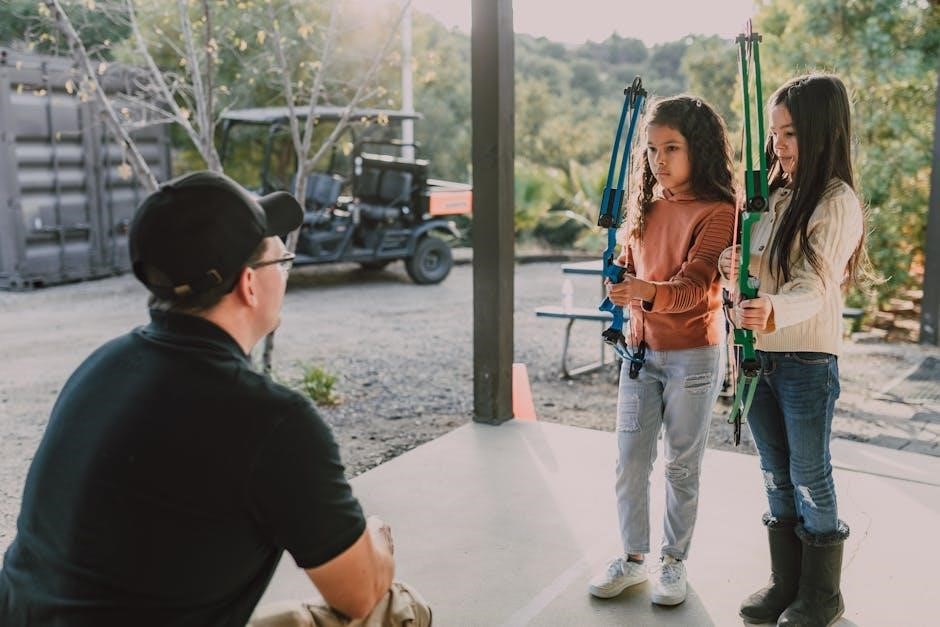Cassie Affidavit PDF: An Overview
Casandra Ventura, known as Cassie, filed a lawsuit exposing Sean Combs for alleged abuse. This involved physical, sexual, and emotional harm, lasting nearly a decade. The legal documents, including affidavits, detail these claims, outlining a troubled relationship marked by violence and control.
Initial Lawsuit Filing by Casandra Ventura (Cassie)
On November 16, 2023, Casandra Ventura, also known as Cassie, initiated legal proceedings against Sean Combs. The 35-page lawsuit detailed a decade-long pattern of abuse. She alleged physical, sexual, and emotional torment. Filed in federal court, the suit accused Combs of rape and sex trafficking.
Ventura claimed she was forced into drug-fueled, nonconsensual sexual encounters. The Adult Survivors Act enabled the lawsuit, addressing past grievances. The case highlighted power dynamics and alleged exploitation within the music industry. Rapid settlement followed the initial filing, raising questions about accountability. Cassie’s lawyer addressed Combs’ apologetic response to a surveillance video.
MAAP’s involvement, with Cassie Hurd’s affidavits, provided further context. The lawsuit brought attention to broader issues, impacting the hip-hop industry. It also prompted discussions about consent and abuse. The case underscored the importance of supporting survivors and addressing systemic issues.
Allegations of Abuse Against Sean Combs (Diddy)
The lawsuit filed by Casandra Ventura contained serious allegations against Sean Combs, also known as Diddy. These allegations detailed a pattern of abuse spanning several years. Ventura claimed Combs subjected her to physical violence and emotional manipulation. The accusations included instances of rape and sex trafficking, indicating a severe breach of trust and consent.
Ventura also alleged that Combs forced her into drug-fueled, nonconsensual encounters with other individuals. These claims painted a picture of coercion and control within their relationship. The lawsuit further implicated Combs’ business entities, raising questions about their role in enabling or overlooking the alleged abuse.
The legal action brought these allegations into the public sphere, prompting widespread discussion and scrutiny. Combs’ response to these accusations has been closely monitored, adding complexity to the ongoing legal and public discourse. The allegations highlight critical issues surrounding power dynamics and accountability.
Key Points from Cassie’s Allegations
Cassie’s allegations against Sean Combs encompass physical and emotional abuse. They included sexual assault and sex trafficking claims, as well as drug-fueled nonconsensual encounters. These points highlight severe misconduct within their relationship, prompting significant legal and public attention.
Physical and Emotional Abuse Details
Casandra Ventura’s lawsuit detailed extensive physical and emotional abuse allegedly inflicted by Sean Combs over nearly a decade. The complaint described a pattern of controlling behavior and violence, including instances where Combs allegedly held Ventura captive, creating a cycle of abuse. According to the claims, this abuse included beatings and other forms of physical assault, contributing to a climate of fear and intimidation. The emotional abuse was characterized by manipulation and psychological tactics designed to isolate and control Ventura.
The lawsuit further suggested that this combination of physical and emotional abuse had a profound and lasting impact on Ventura. The details presented in her affidavit paint a picture of a deeply troubled relationship, marked by Combs’s violent behavior and disturbing demands. The allegations also highlight the power dynamics at play, with Combs allegedly exploiting his position to maintain control over Ventura.
Sexual Abuse and Sex Trafficking Claims
Casandra Ventura’s lawsuit against Sean Combs included serious allegations of sexual abuse and sex trafficking. The legal filings detailed instances of rape and other non-consensual sexual acts allegedly committed by Combs. Ventura claimed that Combs subjected her to a pattern of sexual coercion and exploitation, starting when she was only 19 years old. The lawsuit asserted that Combs used his power and influence in the music industry to manipulate and control Ventura, forcing her into situations she did not consent to.
The allegations also included claims of sex trafficking, suggesting that Combs allegedly forced Ventura to engage in sexual encounters with other individuals. These claims painted a disturbing picture of Combs’s alleged behavior, indicating a disregard for Ventura’s autonomy and well-being. The lawsuit further stated that these acts of sexual abuse and trafficking contributed to a climate of fear and control, trapping Ventura in a cycle of abuse.
Drug-Fueled Nonconsensual Encounters
Cassie’s lawsuit against Sean Combs contained disturbing allegations of drug-fueled nonconsensual encounters. The legal documents described incidents where Combs allegedly provided or encouraged the use of drugs, creating situations in which Cassie was unable to consent to sexual activity. These allegations suggested a pattern of coercion and manipulation, where Combs allegedly exploited Cassie’s altered state to engage in sexual acts without her free and informed consent.
The lawsuit detailed specific instances where drugs were allegedly used to incapacitate Cassie, making her vulnerable to sexual abuse. These claims painted a picture of a power imbalance, where Combs allegedly used drugs to exert control over Cassie and violate her boundaries. The allegations underscored the severity of the alleged abuse, highlighting the devastating impact of drug-facilitated sexual assault on Cassie’s physical and emotional well-being.
Related Legal and Public Developments
Cassie’s lawsuit against Diddy led to a rapid settlement. Following this, a surveillance video surfaced, prompting an apologetic response from Diddy. Cassie’s lawyer also issued statements regarding the case and its resolution.
Rapid Settlement of the Initial Lawsuit
The initial lawsuit filed by Casandra Ventura, known as Cassie, against Sean Combs, also known as Diddy, reached a swift settlement. This development occurred shortly after the lawsuit was filed in federal court. The allegations within the lawsuit detailed a pattern of abuse spanning several years, including claims of physical, sexual, and emotional harm. The speed with which the settlement was reached surprised many observers. This rapid resolution prevented the details of the accusations from being further litigated in a public trial. The terms of the settlement were not immediately disclosed, leaving the public to speculate on the motivations and outcomes for both parties involved. This swift conclusion contrasts with the potential for a lengthy and contentious legal battle. The implications of the settlement remain significant, particularly regarding future legal actions and public perception.
Diddy’s Apologetic Response to Surveillance Video
Following the surfacing of a 2016 surveillance video, Sean “Diddy” Combs issued an apologetic response. The video appeared to corroborate some of the allegations made by Casandra Ventura, known as Cassie, in her lawsuit. Diddy’s apology acknowledged his actions depicted in the video, expressing remorse for his behavior. While not explicitly admitting guilt to all the claims made in Cassie’s lawsuit, the apology was interpreted by many as an admission of wrongdoing. The surveillance footage added a visual dimension to the accusations. This fueled further public scrutiny and discussion. Diddy’s statement aimed to address the growing controversy and mitigate the damage to his reputation. The apology came amidst increasing pressure from the public and media outlets. His response was carefully worded, seeking to balance accountability with legal considerations. The impact of the apology on ongoing legal proceedings and public opinion remains a significant factor.
Cassie’s Lawyer’s Statements
Following the filing of the lawsuit and the subsequent settlement, Cassie’s legal representatives issued statements to the public and the media. These statements aimed to clarify the objectives of the lawsuit and address any misconceptions surrounding the case. Cassie’s lawyers emphasized their client’s courage in coming forward with her allegations. They highlighted the importance of holding perpetrators of abuse accountable for their actions. The legal team underscored their commitment to supporting Cassie throughout the legal process. They praised her strength and resilience in the face of adversity. Statements also addressed the rapid settlement, explaining that it allowed Cassie to regain control of her life. The lawyers reiterated their dedication to protecting victims of abuse. They expressed hope that the case would empower others to come forward. The legal representatives carefully navigated the complexities of the case. They sought to ensure Cassie’s voice was heard while upholding her privacy. The statements reflected a commitment to justice and advocacy for survivors of abuse.
Impact and Context of the Case
Cassie’s lawsuit against Diddy has broader implications, potentially influencing the hip-hop industry. It connects to the Adult Survivors Act, offering a path to justice. MAAP’s involvement, with Cassie Hurd’s affidavits, further contextualizes the allegations.
Connection to the Adult Survivors Act
The singer Cassie accused the rap mogul of subjecting her to years of abuse, in a suit made possible by the Adult Survivors Act. The Adult Survivors Act played a crucial role in enabling Cassie to file her lawsuit against Sean “Diddy” Combs. This act temporarily lifted statutes of limitations for sexual assault cases, offering a window for survivors to seek justice. Cassie’s case, alleging years of abuse, fell within this window, allowing her claims to be heard in court despite the passage of time.
The act provided a legal pathway for Cassie to address past grievances and seek accountability. This connection highlights the act’s significance in empowering survivors. This act’s temporary suspension of limitation periods allowed this case to happen, further highlighting its importance.
Potential for Broader Impact on Hip-Hop Industry
Cassie’s lawsuit against Sean “Diddy” Combs could spark a sexual assault reckoning within the hip-hop industry. Allegations of abuse, rape, and sex trafficking have the potential to trigger a wider examination of power dynamics and misconduct. The case may encourage other victims within the industry to come forward and share their experiences. This could lead to increased scrutiny of industry practices and a call for greater accountability.
The lawsuit’s high profile and the ensuing media attention could amplify discussions about consent, abuse, and exploitation. It could lead to reforms and changes within hip-hop culture. The industry may be compelled to address issues of sexual misconduct and power imbalances. This could lead to a safer and more equitable environment.
MAAP’s Involvement and Cassie Hurd’s Affidavits
Cassie Hurd, as Executive Director of the Material Aid and Advocacy Program (MAAP), has submitted affidavits related to the case. These affidavits supplement information and provide context, particularly regarding observations made during related events. Hurd’s involvement and documentation offer additional insights into the environment and circumstances surrounding the allegations.
MAAP’s role suggests a broader connection to issues of advocacy and support for vulnerable individuals. Hurd’s affidavits contribute to a deeper understanding of the complexities surrounding the case. They also provide an external perspective that helps contextualize the claims made. Her testimony as a witness adds weight to the allegations and supports the narrative presented.
Additional Legal Considerations
Supplemental jurisdiction allows related claims under state and city law to be considered. This is pursuant to 28 U.S.C. 1367(a), which broadens the scope of the legal proceedings, potentially including additional relevant factors.
Supplemental Jurisdiction and Related Claims
In the context of the Cassie lawsuit, the court’s supplemental jurisdiction becomes a crucial legal consideration. This jurisdiction, as outlined in 28 U.S.C. § 1367(a), allows a federal court to hear claims that would not ordinarily fall under its purview, provided they are closely related to claims already within its jurisdiction.
Specifically, this means that alongside the federal claims presented in Cassie’s initial lawsuit—alleging sex trafficking and other federal violations—the court could also hear related claims arising under state and city law. These related claims might encompass issues like assault, battery, emotional distress, or other torts recognized under the laws of the relevant state or city.
The significance of supplemental jurisdiction lies in its potential to broaden the scope of the legal proceedings, ensuring that all aspects of the alleged harm suffered by Cassie can be addressed in a single forum. This can lead to a more comprehensive and efficient resolution of the case, avoiding the need for multiple lawsuits in different courts. It also allows the court to consider the full context of the alleged abuse, providing a more complete picture of the situation.

